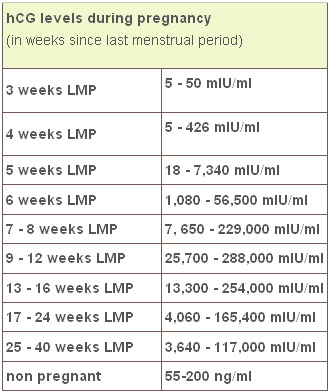Slow Rising hCG Levels
Can hcg Levels Rise Slowly
Human Chorionic Gonadotropin or hCG is more commonly known as “the Pregnancy Hormone” – unless hCG is injected into the body or taken in a pill form, the only way hCG can be found in a woman’s body is when she is pregnant. HCG is produced by a growing placenta and can be detected by a urine test (simple home pregnancy test) or a blood test. HCG level testing is a blood test performed in early pregnancy. HCG levels peak around 8 weeks of gestation and beyond that time, are no longer valid for pregnancy monitoring.
“Normal” levels vary from pregnancy to pregnancy and are not a definite indicator of pregnancy outcome. One hCG blood level is not enough. Several blood tests are generally ordered to monitor the type of increase or decrease of the hCG levels. The following table is a guide of average hCG levels.
HCG blood levels are not routinely drawn on pregnant women. Generally hCG levels are indicated when a problem is suspected with the pregnancy such as vaginal bleeding after confirmed pregnancy.
So What do hCG Levels Mean?
In general, most hCG levels will double every 2-3 days in early pregnancy. This is why more than 1 blood level would be needed if a physician is using the numbers to monitor a pregnancy. HCG levels cannot be used to determine conception or due dates due to variations.
Low hCG levels
One low hCG level does not for certain indicate a problem. Another hCG level would need to be drawn to see what the hCG levels are doing. If the levels continue to rise several days later, the risk of miscarriage goes down. If an hCG level goes down from a previously higher hCG level it’s probably indicative of a miscarriage or other problem.
“Slow to Rise” hCG Levels
If normal hCG levels double every 2-3 days, what does it mean if hCG levels are slow to rise?
It is quite possible to have “slow to rise” hCG levels and go on to have a normal pregnancy. Again, you have to keep in mind that hCG levels are just estimates and each pregnancy is different. The actual numbers are not indicators of the probability of pregnancy complications but rather, the direction the numbers are going. Dropping hCG levels usually indicates a problem. Numbers that go rather high for the estimated gestation period can also indicate a problem such as molar pregnancy.
In other cases, slow to rise hCG levels can indicate a blighted ovum, an impending miscarriage or an ectopic pregnancy.
Many doctors use hCG values as only a reference. Depending on the estimated gestational age, other testing such as transvaginal or abdominal ultrasound is also used to determine pregnancy progress.
The first trimester is the most stressful period of pregnancy because there is nothing you can do but play the waiting game. There is no way you can make your hCG levels rise faster. The most important thing one can do is try to remain calm and follow your healthcare provider’s advice.

